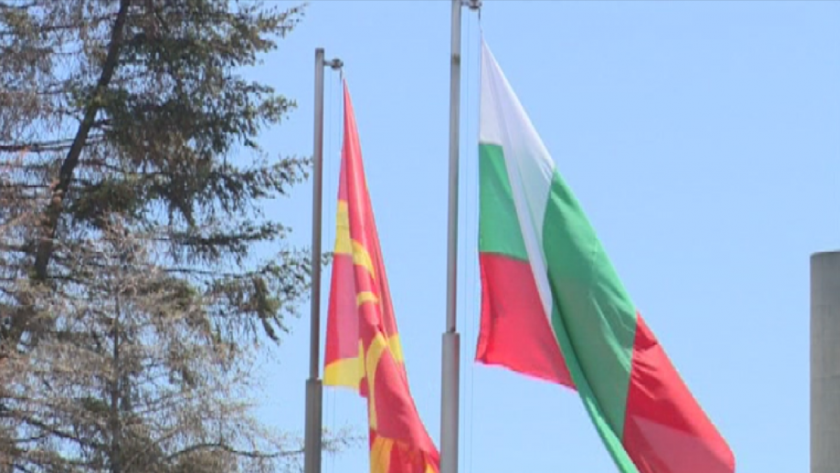We made a little political show for internal use and that’s it
The current Bulgarian state is repulsive both for its citizens and for Bulgarians living abroad
There is also a lack of patriotic education in schools and families
The de facto Bulgarian agreement to the membership of North Macedonia in the EU blew up public opinion. And what happened – politicians of various colors attacked each other with verbal impurity and nonsense. The parliament hastily voted on some French proposal – without analysis and understanding of its essence and consequences. We made a little political show for internal use and that’s it. Although the “proposal” in question is too profitable for North Macedonia, the provocations, lies and attacks do not stop on its side.
For its part, Macedonia has long not been a national cause for the Bulgarian elite. Therefore, it is not surprising that our policy in North Macedonia, and in all the territories of the former Bulgarian land, is collapsing – both in the past and in the present.
Let’s look at three of the main directions that we need to consider in order not to finally lose the war for Macedonia and the Macedonian Bulgarians.
First: Past mistakes and crimes. Let’s list some of them:
After the Liberation, the Bulgarian state, with few exceptions, did not pursue a far-sighted policy with the Ottoman Empire on the Bulgarian issue; The Ilinden-Preobrazhen uprising was poorly prepared, with no possibility of real military support from Bulgaria. Greece and Serbia mainly benefited from his defeat; Bulgaria’s insane participation in wars in which betrayal or inappropriate behavior is widespread – from the palace to the communists; The Comintern’s Macedonianization of Pirin Macedonia; The criminal language reforms of 1921 and 1945, separating the Macedonian dialect from the official Bulgarian language and supporting the imposition of the so-called “Macedonian language”. Much more could be said. Still known facts.
And suddenly came the changes. Borders opened – even in the Balkans. But instead of standing up proudly, our downtrodden brothers and sisters in neighboring countries prefer to keep quiet about their origins. The Bulgarians, who declare themselves as such, are singular. Yes, the mad pressure and brainwashing is clear. There are also “unfortunate cases” – such as the death of the researcher of the Macedonian Bulgarian dialects – Prof. Blagoi Shklifov in 2003. And yet – it is not what it was until thirty years ago.
This is how we arrive at the second direction – our country is not attractive to live in. Let’s tell the truth – the main reason for the lack of revival of the Bulgarian language in the lands cut off from Bulgaria is purely our own, our own. And it is that the current Bulgarian state is repulsive both for its citizens and for Bulgarians living abroad.
The question is – what do we have, what do we oppose as a state to Greece, North Macedonia and Serbia – our destroyed economy, culture, education, health care? What? One-day politicians and one-day ideas. There is absolutely no question of national sovereignty. In contrast to Serbia and Greece, which manage to preserve their sovereignty within the widest limits that the modern globalized world allows.
Being Bulgarian in Bulgaria is a tough test. The Bulgarian is oppressed by his own institutions – inefficient and corrupt. Ethnic crime is tolerated. How can the Bulgarian in Greece, North Macedonia and Serbia expect protection from the Bulgarian state, given that it does not protect its citizens? Not to mention the standard of living. People compare and comparison is not in our favor.
Third – lack of national doctrine and strategic goals. Let’s ask at least some questions: What is our strategic goal regarding Macedonia? Is there a political consensus? What do we imagine will happen in the end – will North Macedonia join Bulgaria in whole or in part, or will it remain an independent state in which different ethnicities will coexist peacefully, one of which is Bulgarian, or something else? What do we really want? For comparison – in Serbia and Greece, the governments change, but their policy regarding Bulgaria and the Bulgarians is consistent. They know what they want and have no scruples in their actions. For the information of our politicians – this is how it is done.
We don’t have an analysis of what we lose and what we gain from North Macedonia’s entry into the European Union – ethnically, politically, economically, militarily, culturally, etc.? What do the various countries – the other Balkan countries, the USA, Germany, France, Russia, China – gain and lose from Macedonia’s entry into the EU? What do we gain and what do we lose from their gains and losses? This analysis would give us guidance on how to work with individual countries to achieve our goals.
Our relations with Albania are ignored. Why are we not actively supporting Albania for EU membership? Why don’t we realize that Albania is one of the few countries that are well-intentioned towards us, while it has serious influence in North Macedonia? Why don’t we build a special, mutually beneficial relationship with her?
Bulgarian diplomatic tradition is missing – every new government comes with its people, a large part of them unprepared and unmotivated to work for the Bulgarian cause. Career diplomats are ignored. It is clear that it will be difficult to defend our interest on the diplomatic battlefield.
Especially important in the current era – there is a lack of state-organized and consistently conducted pro-Bulgarian propaganda in social media, as well as a fight against anti-Bulgarian propaganda.
It lacks an honest historical analysis – what and how happened in the relevant historical context. Causes, consequences and conclusions – objectively and impartially. There is also a lack of patriotic education in schools and families.
Last but not least – there is a lack of strong and motivated army, police, intelligence, counter-intelligence. Question – how do you create an agency in neighboring countries, given that we have lists of our agents at foreign embassies? How?
These are just three of the issues to analyze and make sense of. The facts are clear, the questions to be resolved – many. Whatever we say, however, in order to be successful in North Macedonia, we must first rebuild our own home and know our goals. History is a good starting point, but people want a dignified present and a better future.
–


